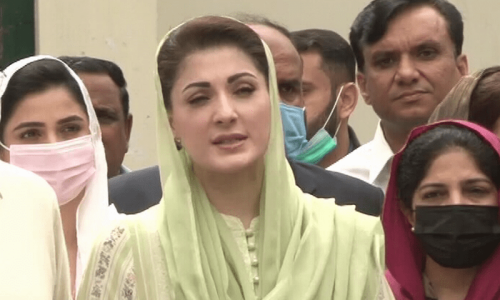LAHORE: With Punjab Food Department and Pakistan Agriculture Services & Storage Corporation (Passco) still procuring wheat, its rate has started going up in open market and millers threatening to increase flour price in the next 24 hours unless the provincial government starts releasing wheat at the subsidised rates.
“This is exactly the position, we had last year – price of wheat increasing during procurement – and had a disastrous year as far as staple’s prices are concerned,” says Asim Raza, who heads the Punjab chapter of the Flour Mills Association, and warns: “It is a sense of déjà vu; and we may have another tough season ahead.”
“Expect flour price increase in a day or two, unless the provincial government opens gates of stocks. On Monday, wheat price in Lahore had gone up to Rs2,050 and Rs2,100 per maund in Rawalpindi – against the official price of Rs1,800 per maund – and the spike is continuing. This additional cost of Rs250 to Rs300 will be passed on to consumers and the price of 20kg bag will jump by Rs50 – from Rs1,050 to Rs1,100 – in next one or two days,” he predicts.
The millers think that three factors that the food department refuses to acknowledge are causing confusion in the market. “The price differential between Sindh and Punjab, as expected all along, has started playing its role. Wheat from the South is now travelling to Sindh, where rate is Rs500 per bag more than Punjab,” explains Majid Abdullah – a miller from the city. That is precisely why the Passco is still struggling at 67 per cent (807,723 tonnes) of 1.2 million tonnes; no one is ready to sell it to Passco as the open market rate is Rs200 to Rs300 more.
Staple’s rate goes up in open market as it’s being transported to KP, Sindh
The Punjab is still purchasing but they are down to 200,000 tonnes because of price differential. If the millers were providing 20kg bag at Rs860 when wheat was being supplied to them at Rs1,475 per maund, now they are paying Rs500 to Rs600 more than that. It means Rs250 to Rs300 addition to 20 kilo bag. The millers have gone 30 per cent down on their stocks because they are not getting wheat from open market for the last (post-Eid) 15 days, which is being hoarded or sold at the higher price. How much price of flour goes up depend upon the millers’ association’s arithmetic, which it is doing right now,” he says.
The Punjab Food department is sitting pretty on the claim of bumper crop, without realising that it is slipping away to Khyber Pakhtunkhwa and Sindh, explains Muhammad Ramzan – a wheat trader from the city. “It is bumper crop if you have it. Sindh terminated its procurement mid way, knowing fully well that it would be fed by Punjab later on. Its deficit of over 700,000 tonnes is being met by Punjab. The seed companies were allowed to purchase much more than needed because of cozy concept of bumper crop; around 700,000 tonnes went to them, which they would be trading to Sindh at much higher price. Why were they allowed to procure more than their requirement? This slippage factor and additional (legal) ‘hoarding’ by the seed companies have helped drying up market much earlier,” he points out.
“The Punjab started its season with 4.7 million tonnes last year. This year, it is down to around four million tonnes. Granted that millers have over 700,000 tonnes this year, which they did not have last year. But both digits neutralise each other and final figure remains the same. With this amount, the country ended up importing 3.61 million tonnes at a cost of $983 million last year, with flour price sustaining exceptionally high trend and creating massive social chaos. Will it be repeating the same import orders and still suffer higher domestic price?” fears Muhammad Shabir – a trader from the city.
Repeated unsuccessful attempts were made to reach Danish Afzal, Punjab food director, to know the official strategy to deal with the situation.
Published in Dawn, June 9th, 2021
















































